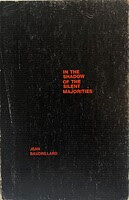Isekai has had a minor Satanic Panic in Russia in 2021 due to a belief that the genre depicts reincarnation as desirable and therefore may tempt people to hasten it. Judicial clowning aside, a more serious backlash has occurred throughout the last decade. It probably peaked in 2016-217 when a Shōsetsuka ni Narō short story contest banned isekai entries and the publisher Kadokowa followed suit in its own contest the next year. (1) As far as I can tell, there was a feeling that the genre was overpopulated and might have exhausted itself. Whatever the merits of this, the genre remained popular and the bans did not continue. (2)
So why has isekai, at least so far, kept coming back? It is not merely because it is an escapist genre about literally escaping to another world. The virtues of escapism are part of an ancient dispute within fantasy, with Tolkein supposedly saying to C.S. Lewis that the people most hostile to the idea of escape are jailers, and Michael Moorcock retorting much later that "Jailers love escapism. What they hate is escape." Whichever side of this you prefer, the point in the present context is that there are many genres that provide escapism if that is what people want. Why isekai?
I suggest that part of the answer is isekai's wholehearted commitment to Eros. There are other escapist genres that are commited to Thanatos – science fiction, for instance, likes to call itself the literature of ideas but might more accurately be called the literature of genocide – but death drive abounds in our societies as we embrace ecological and other catastrophes, and perhaps that is what needs to be escaped from most of all.
Another possible answer is provided by Baudrillard, writing in 1983 just 4 years after Eco's _The Role of the Reader_. In these four years something uneasy has happened to that word "infantilism":
"The child resists on all levels, and to a contradictory demand he also responds with a double strategy. To the demand to be an object, he opposes all the practices of disobedience, revolt, emancipation; in short, a total claim to subjecthood. To the demand to be a subject, he opposes just as stubbornly and efficaciously with an object's resistance, that is to say, in exactly the opposite manner: infantilism, hyperconformism, a total dependence, passivity, idiocy. Neither of the two strategies has more objective value than the other. The resistance-as-subject is today unilaterally valorized and held as positive - just as in the political sphere only the practices of liberation, emancipation, expression, and constitution as a political subject are taken to be valuable and subversive. But this is to ignore the equal or perhaps even superior impact, of all the practices-as-object - the renunciation of the position of subject and of meaning - exactly the practices of the masses - which we bury and forget under the contemptuous terms of alienation and passivity."[...] "the system's current argument is the maximization of the word and the maximal production of meaning. Thus the strategic resistance is that of a refusal of meaning and a refusal of the word - or of the hyperconformist simulation of the very mechanisms of the system, which is a form of refusal and of non-reception."
Closed genres, with their multitude of slight variations around what the reader already expects, are a way of producing content without also producing meaning, and are therefore ideal for this strategy. I find this somewhat persuasive since the charge of infantilism never made any sense for what is essentially an adolescent pursuit.
In any case, Baudrillard's concept of the mass leads back to the religious beliefs in reincarnation and demiurgy – in this context, practices of the mass rather than the individual genius. The individually talented writer, like Tolkien, may well feel that they are practicing subcreation, a sort of divinely approved inpiration, and we refer to the judgment of the works of these writers as being up to history, as if they have gone to Heaven.
Reincarnation, on the other hand, is a practice that everyone does, taking roles in turn, with no single act or single life being definitive. Demiurgy in its classic Gnostic context was the individual act of a Demiurge, but in a more ordinary sense is the effort of any creator to make a fictional world that they know will be seriously flawed. As such it can be done by anyone, and is done, as the more than a million novels submitted to Shōsetsuka ni Narō show. It is the task of our time to find a way to value this work as itself, without taking the trouble – in any case impossible – of reading all of it. (3)
Endnotes
1. The Kadokowa ban was supposedly in favor of adult content, since teenage protagonists were also banned. The publisher specified that it had to be a male, adult protagonist, so it may have been a matter of them going for a very specific demographic.
2. American reception of isekai is largely based on anime, for which a common perception is that isekai displaces more varied works (anime is a medium that has works in many different genres) and replaces longer series with a succession of 12-episode ones that often only have a single season. Since isekai is not as closely identified with anime in Japan, I don't know whether this is as much of a cause for backlash there.
3. I have thought about a universally produced art for a much longer time in the context of poetry: in the US, the audience for live poetry events comes perilously close to a 1:1 ratio of writers to readers.




